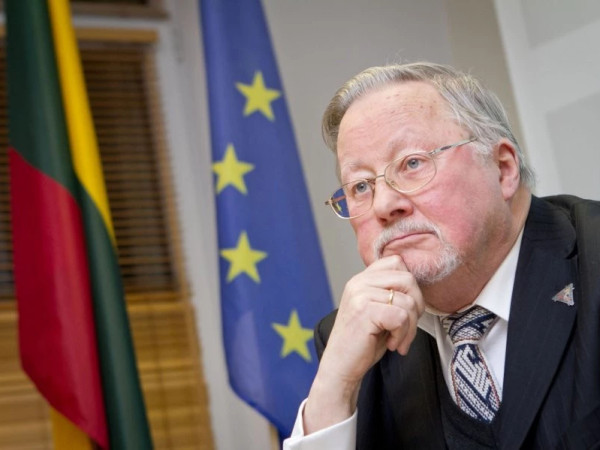Uncertainty about the economic consequences of the pandemic is the biggest hindrance to private investment, therefore, the public sector should take the lead to revive it, said Vitas Vasiliauskas, Chair of the Board of the Bank of Lithuania, who spoke about the acceleration of economic recovery and the economic transformation by stimulating investment and improving its funding conditions.
“It is understandable that businesses will remain particularly cautious and postpone investment until the pandemic is contained. Under such circumstances, the state should take the lead with a clear and transparent plan laying down the direction of billions of euros in public investment in the coming years”, said Vasiliauskas.
In his opinion, the general government’s opportunities to fund investment using low-cost financing sources are particularly good at the current moment. The State Investment Program envisages the allocation of €3.2 billion for public investment by 2023. Investment should be additionally boosted by the funds of the EU’s Recovery and Resilience Facility, which currently foresees €2.2 billion for Lithuania. If the funds were used efficiently, the current uncertainty surrounding investment could be reduced, a solid package of orders for businesses could be created and the engine of economic recovery could be started. Thus, targeted public sector investment that generates long-term value added and brings about modernization of the economy would lay a solid foundation for the future economic growth.
The utilization of the funds from the Recovery and Resilience Facility envisaged for Lithuania will be coordinated with the European Commission.
These funds should be allocated in Lithuania for several priority areas: the economic transformation focusing on the generation of higher value added, digitalization and green investment. For this purpose, it is necessary to invest in the human capital, i.e. intelligence and skill improvement, to adapt to the needs of the future economy.
In order to accelerate convergence to the EU average, Lithuania can and has to take advantage of the changes in the global value chains. As the European businesses seek to bring these value chains closer to home markets, Lithuania gains new opportunities to compete for foreign direct investment.
The pandemic accelerated the digitalization of the economy, therefore, investment policy should support the use of automation and artificial intelligence to increase efficiency as well as the improvement of digital literacy of employees.
Finally, investment should respond to climate change challenges. Investment in green technologies will not only help reduce pollution and greenhouse gas emissions, but also increase energy efficiency. Green investment should make renewable energy sources cheaper than the currently used fossil fuel sources, such as oil, gas or coal.
In recent years, the public sector has been investing almost €1.5 billion each year, whereas from this year it will be able to increase this investment significantly by using the funds envisaged for Lithuania in the EU’s Recovery and Resilience Facility.















